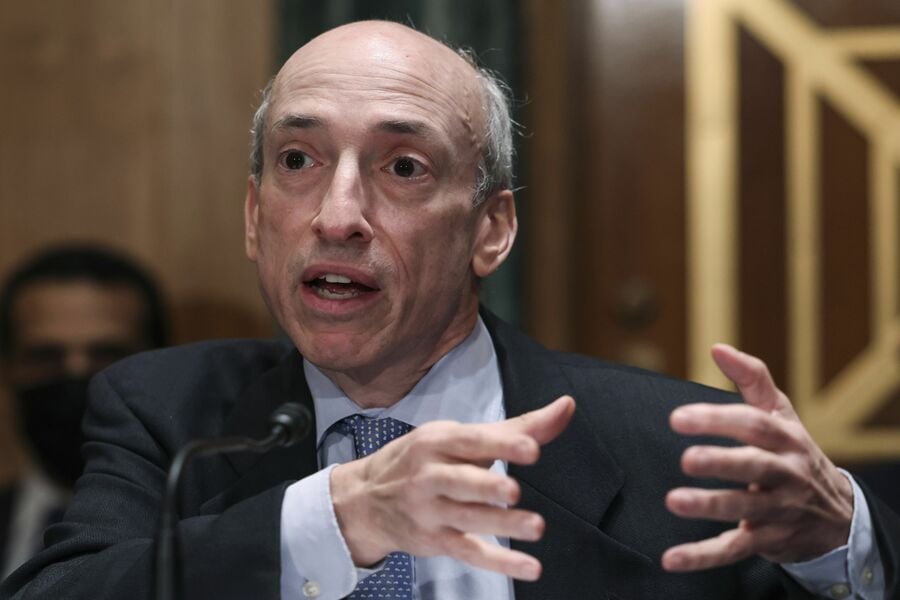

The Securities and Exchange Commission is ratcheting up its scrutiny of investment firms using leveraged and inverse exchange-traded funds to hedge against market volatility.
The products “can pose risks even to sophisticated investors, and can potentially create systemwide risks by operating in unanticipated ways when markets experience volatility or stress conditions,” Chairman Gary Gensler said Wednesday in remarks at an industry event.
Retail investors and private funds alike have flocked to these derivatives-powered products this year amid market turmoil to bet on declines and to hedge against various stocks. While these ETFs can be a useful trading tool during market downturns, their structure means they can also deliver swift losses.
The trades have been at the center of market meltdowns over the years, and regulators have previously cautioned investors about using them in the wake of the 2008 financial crisis.
Following events such as the collapse of Archegos Capital Management, Gensler said his agency needs to take a closer look at derivatives products.
“In the past few months alone, with our regulatory and law enforcement partners, we have brought charges for historic events involving funds and derivatives,” Gensler said. “There may be more to come, unfortunately.”
[More: The complexity of ETF options]

Summit Financial unveiled a suite of eight new tools, including AI lead gen and digital marketing software, while MassMutual forges a new partnership with Orion.

A new analysis shows the number of actions plummeting over a six-month period, potentially due to changing priorities and staffing reductions at the agency.

The strategic merger of equals with the $27 billion RIA firm in Los Angeles marks what could be the largest unification of the summer 2025 M&A season.

Report highlights lack of options for those faced with emergency expenses.

However, Raymond James has had success recruiting Commonwealth advisors.
Orion's Tom Wilson on delivering coordinated, high-touch service in a world where returns alone no longer set you apart.
Barely a decade old, registered index-linked annuities have quickly surged in popularity, thanks to their unique blend of protection and growth potential—an appealing option for investors looking to chart a steadier course through today's choppy market waters, says Myles Lambert, Brighthouse Financial.
